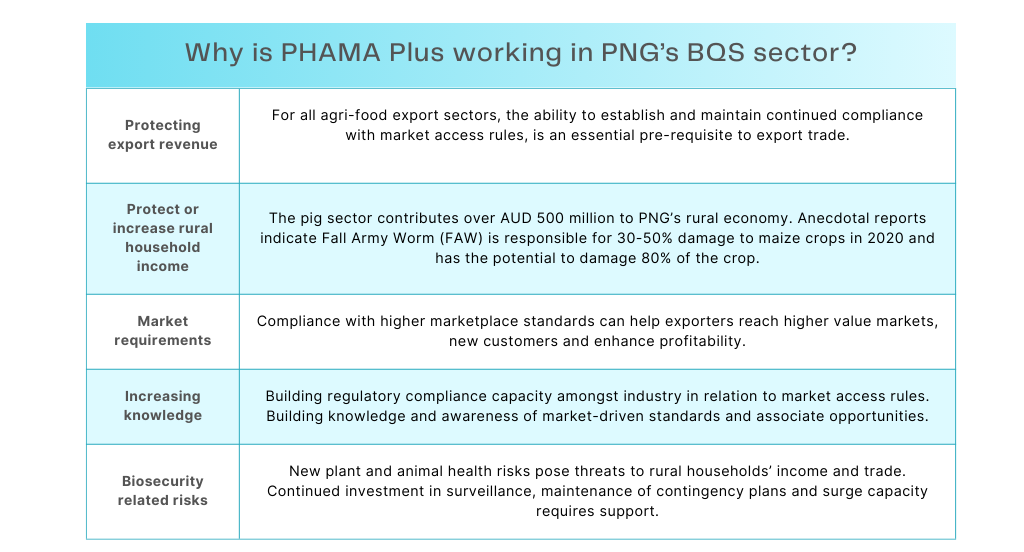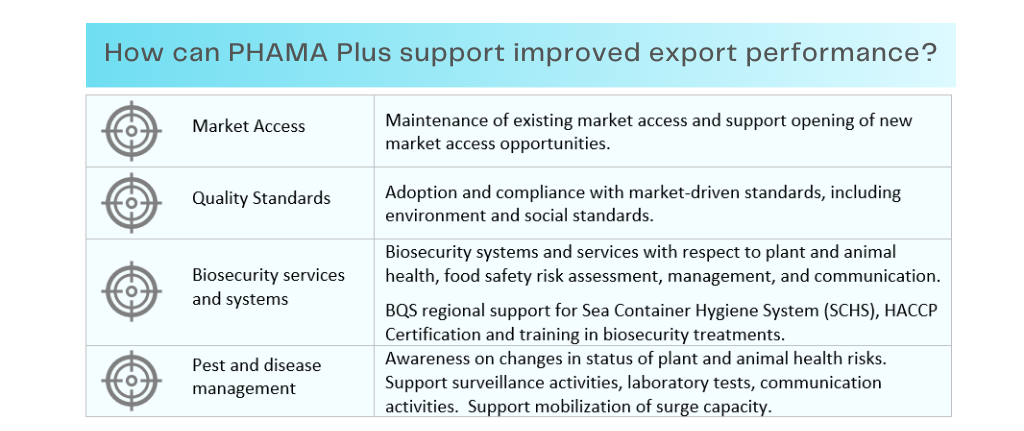In Papua New Guinea (PNG), PHAMA Plus has been working with the National Agriculture Quarantine and Inspection Authority (NAQIA) in the emergency response and long term containment of African Swine Fever (ASF) including delivering effective biosecurity related services. LEARN MORE
International export markets are associated with complex biosecurity, certification and quality requirements, market development costs, transport costs, delivery risks and competition. Agricultural, horticultural, food and forestry product exports will not happen, or be severely constrained, in the absence of effectively operating biosecurity, quality and standards (BQS) functions. The establishment of, and the effective and efficient operation of relevant BQS functions, has a direct impact on which commodity and markets a Pacific Island country can export to, on competitiveness, and on what type of customers can be targeted.
Investment in BQS is a key determinant of success in export markets and can be linked to the volume and value of exports, potential levels of export revenue and rural household income. Across all PHAMA Plus countries, there are continuing opportunities to build knowledge and awareness of BQS requirements and to strengthen the associated enabling and service functions. The scope of BQS work covers the minimum regulatory requirements for a product to enter market, but also extends to specific customer requirements in relation to food safety, legal traceability, social and environmental standards such a captured by GLOBALG.A.P., HACCP and other food safety standards such as ISO 22000 and FSSC 22000.


